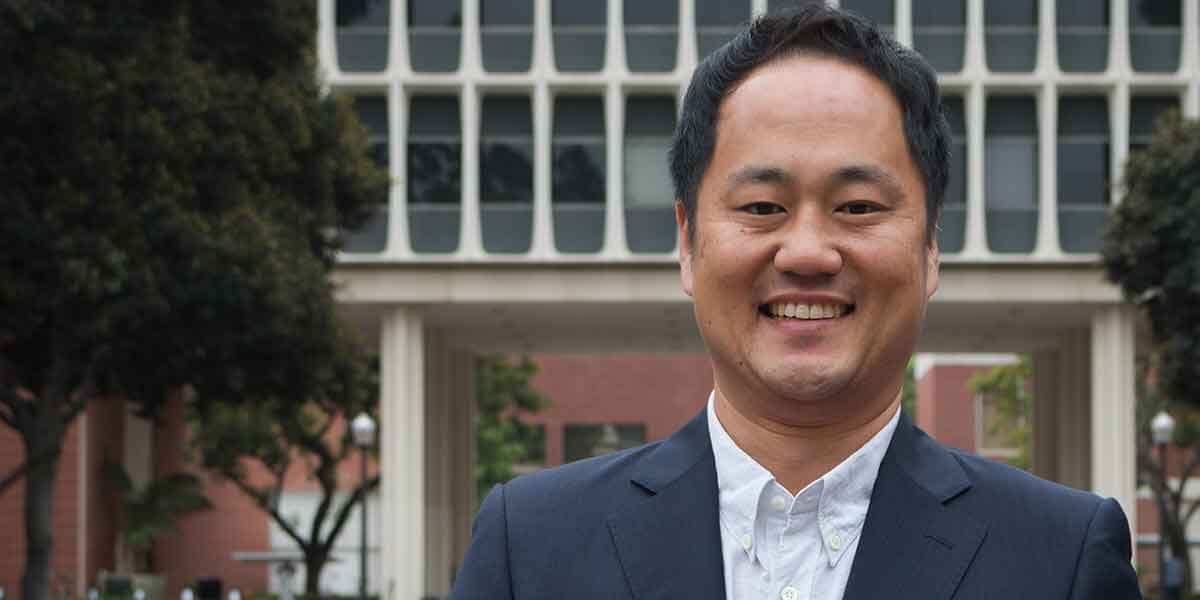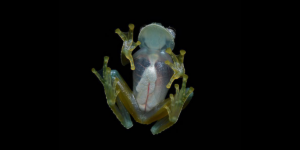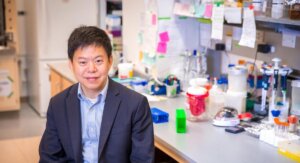
Sangpil Yoon (Photo by Valentina Suarez)
Sangpil Yoon has become the first-ever USC Viterbi postdoctoral fellow to win a prestigious Pathway to Independence Award, or K99.
He received the accolade for developing a novel technique for the intracellular delivery of macromolecules using high-frequency ultrasound, a method called acoustic-transfection.
Acoustic-transfection might become a versatile transfection technique. It can better deliver diverse biologically active molecules such plasmid DNA, messenger RNA, recombinant proteins, and CRISPR-Cas9 system into cells to treat diseases such as cancer, Parkinson’s, Alzheimer’s and other neurodegenerative conditions. (Transfection is the process of inserting genetic material into mammalian cells.)
“I’m very happy and excited for him,” said K. Kirk Shung, the Dean’s Professor in Biomedical Engineering and Yoon’s senior advisor. “This is a highly competitive award, and his winning it means that USC BME research is taking a small step in gaining peer recognition.
The five-year $932,000 award will fund Yoon in his long-term quest to engineer an ultrasound device that can transfect cells or transport customized drugs and biomolecules across cell membrane. This approach, Yoon said, avoids the use of foreign materials such as nanoparticles to the cells and promises to be more targeted and effective than existing methods.
The National Institutes of Health administers the K99 awards to support innovative postdoctoral research and increase the likelihood of award winners landing university tenure-track or equivalent research positions. Professor Shung believes that Yoon’s K99 will “enhance his chances of obtaining a quality faculty position tremendously” and of landing additional outside support for his research.
Yoon said USC Viterbi’s “cutting-edge facilities and equipment make it possible to transform preliminary ideas and sketches into reality.” Yoon also said that his research center, directed by Shung, has been a wonderful place to work and experiment. Additionally, Yoon said he has deepened his knowledge of ultrasonic transducers and imaging as well as molecular and cellular biology during his USC postdoc.
Yoon credits Shung for nurturing him to come up with his own ideas, adding that his senior advisor is “always there to help and encourage me and has given me confidence.”
Shung will continue to supervise Yoon’s work for the next year or two. Afterwards, Yoon hopes to find a full-time faculty position at a top-tier research institution.
“I just love research. Speculating first in my mind and then trying to make that idea into a reality is really fascinating to me,” Yoon said. “Whenever I see a roadblock or hurdles, I just want to overcome them, to jump over the problem.”
A South Korean native, Yoon studied mechanical engineering at Yonsei University and earned an M.S. in aerospace engineering at the Georgia Institute of Technology. After Georgia Tech, Yoon went to work at Samsung Electronics in Korea for three years.
A newfound interest in ultrasound imaging and acoustics led him back to the academy. In 2012, Yoon earned his doctorate in mechanical and biomedical engineering at the University of Texas at Austin.
Yoon has developed a reputation for his unrivaled work ethic.
“I may come to office at 7 a.m., and he is already here.” Shung said. “I don’t know when he sleeps. Once he starts working, he doesn’t stop.”
Published on June 5th, 2017
Last updated on August 30th, 2019










